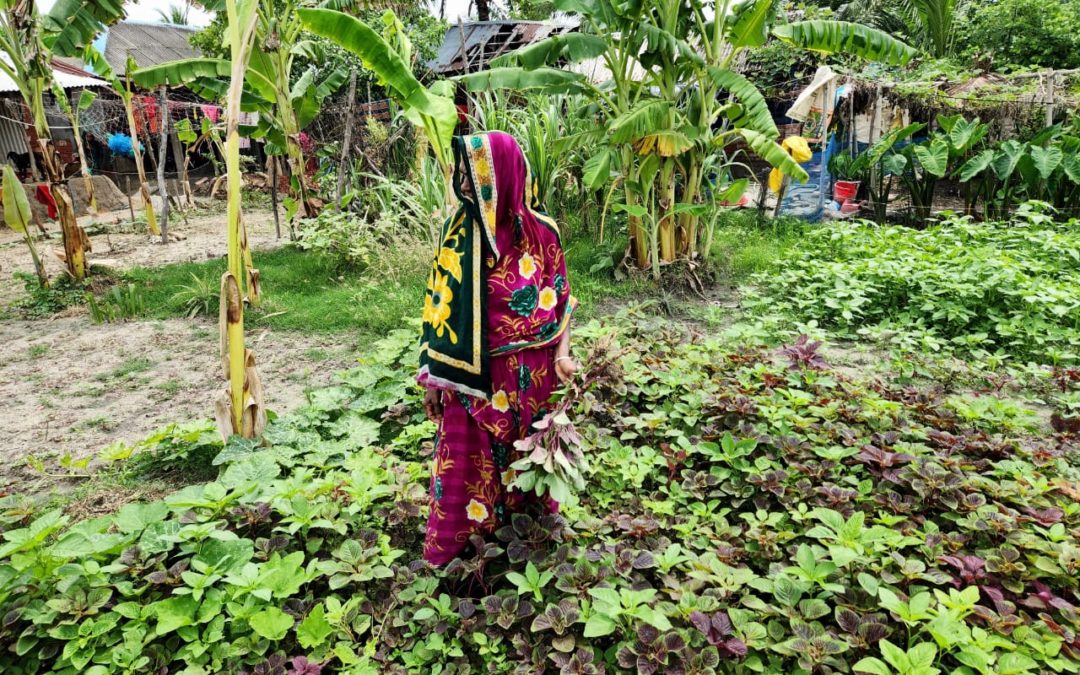
by Shimim Mushsharat | Jul 8, 2025 | Blog, Resources
Rahima Khatun’s life has been shaped by challenges. She lives with her husband, one of her sons, his wife, and their child. Her two other sons have married and moved out. Her husband, now elderly, is unable to work much, and the son who lives with them is only able to earn seasonally. Together, their incomes are not enough to support the family of five.
With no land in their name, they faced not just financial uncertainty but also a lack of food security.
But Rahima is not one to be intimidated by obstacles. Through sheer determination and persistence, she turned her hardship into an opportunity.
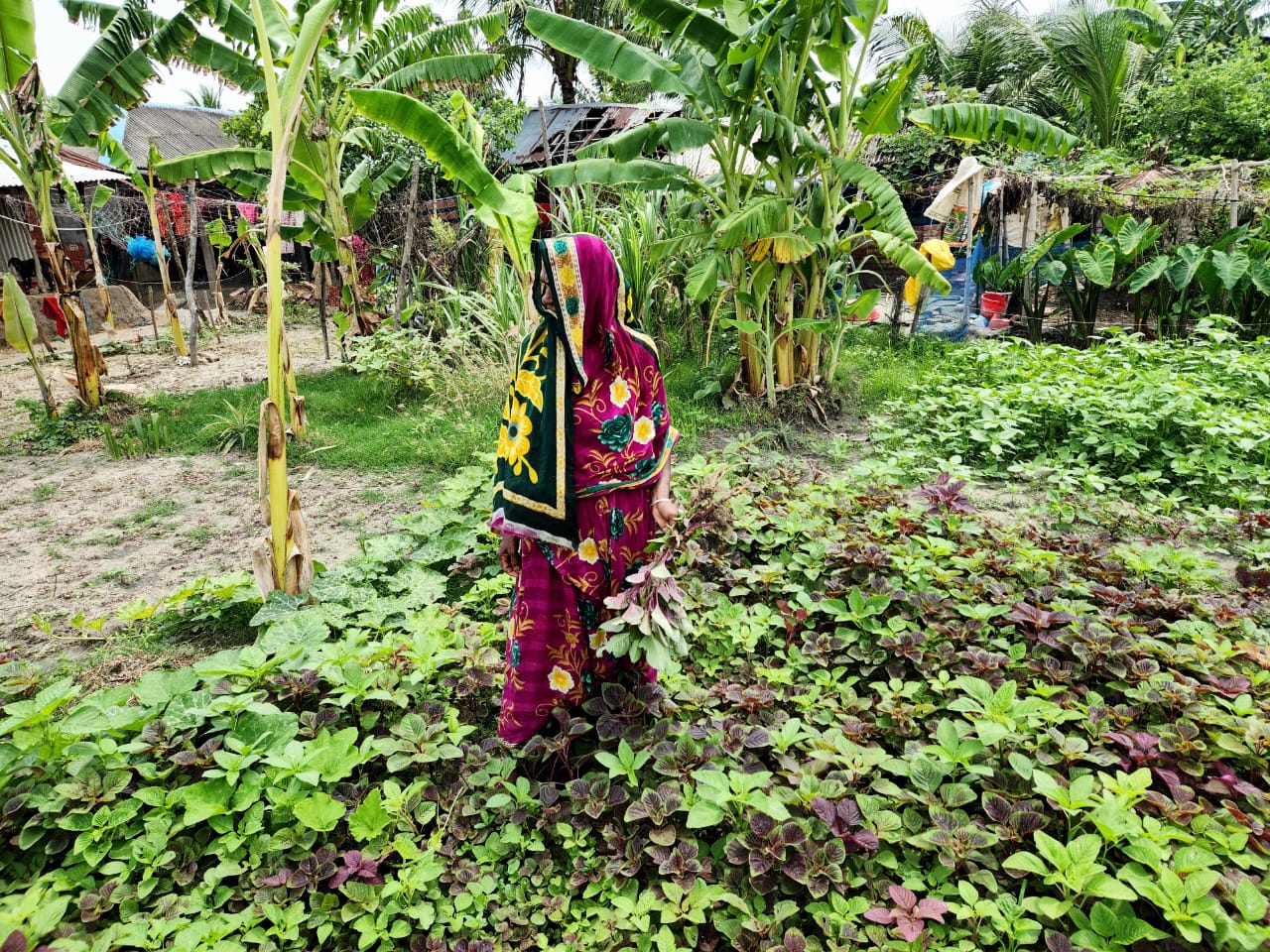
Rahima Khatun grows a multitude of vegetables on her yard.
A Natural Leader in the Field
When SAJIDA Foundation’s ENGAGE4Sundarbans project started its ethnographic research, Rahima was selected as research participant due to her involvement with agriculture. She spoke candidly during interviews, sharing her farming knowledge and the struggles that came with having limited land and financial resources.
From the beginning, Rahima was determined to carve out a space for herself in her family and community. She was surprised and encouraged when she learned she had been selected to join one of ENGAGE4Sundarbans’s intervention groups testing crops with high value addition potential. She was placed in the group assigned to grow fennel along with two other female farmers.
Before long, Rahima became much more than just a participant. She took the lead in group planning, organised meetings, and became an active figure in project activities. Even her husband began to support her involvement, gradually letting go of his initial doubts.
As part of ENGAGE4Sundarban project’s group farming initiative, she now cultivates rice, grains, and vegetables on the land next to her home. In another small plot of just two decimals, she farms freshwater fish for her family’s consumption. Her yard, too, has a multitude of vegetables growing. Years ago, her elder son started building a roofed house, but financial constraints postponed the construction. Rahima, ever resourceful, transformed the unfinished structure into yet another thriving vegetable garden.
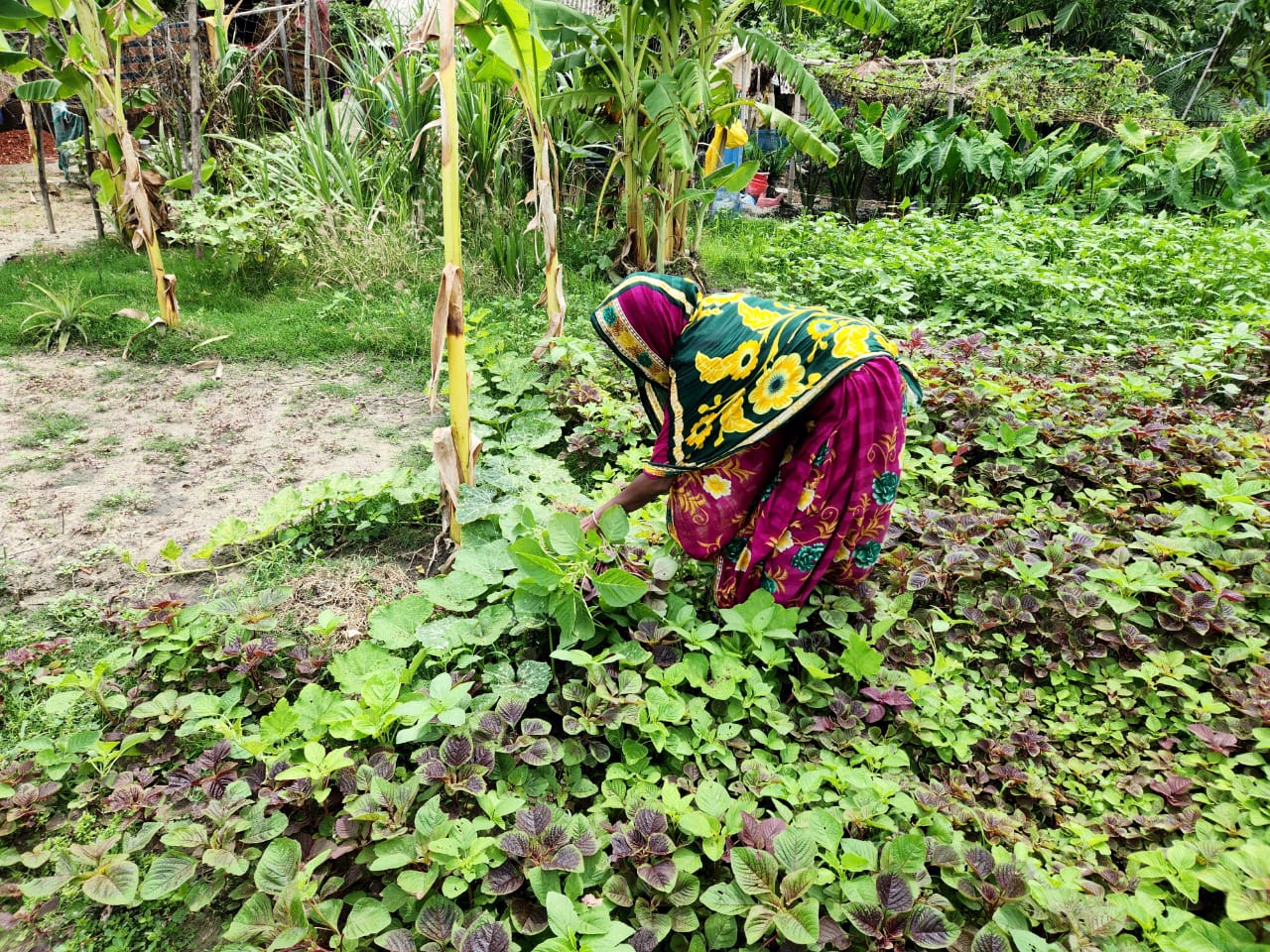
Through determination and persistence, Rahima has turned her hardship into an opportunity.
A Home Garden to Ensure Food Security
What truly sets Rahima’s farming apart is her commitment to diversity. During the monsoon, she grows Aman paddy. Once harvested, she uses the same land to plant potatoes, sunflowers, fennel, sesame, and melon during the Rabi season from Mid-November to Mid-March. In other plots, she cultivates mustard alongside red cabbage, spinach, radish, and coriander, aubergine, onions, beans, beetroot, gourd, and winter crops like spring onions, garlic, and chillies also find space in her garden. Her motivation is both practical and personal. She refuses to buy oil or vegetables from the market.
“Why spend money [on oil or vegetables] when I can grow them myself?” Rahima, a traditional farmer and participant of ENGAGE4Sundarbans project, says.
One of Rahima’s long-held dreams was to lease land in her own name, so she could grow rice without depending on others. Her wish came true when ENGAGE4Sundarbans leased land under the names of Rahima and her group members.
Looking ahead, Rahima hopes that by selling fennel in the Rabi season and vegetables during Kharif (Mid-March to Mid-November), she can earn enough to lease more land and commercially scale up her farming.

by emilie.cremin@gmail.com | Oct 10, 2024 | Integrated Farming, Resources
Integrated Farming: agriculture-aquaculture
In coastal Bangladesh, Agriculture is disrupted by salinity intrusion, tidal surges, poor soil health, water unavailability, cyclones and other climate change-induced disasters. Fragmented land, poor infrastructure, inefficient irrigation and policy failure further hinder agriculture. In Sundarbans areas where subsistence farming is still the main source of livelihood for millions of people, reduced agriculture and loss in production pushes people further to the poverty line, and subsequently to migrate.
Collaborating with ULAB, the SAJIDA Foundation is currently researching the efficacy and effectiveness of introducing climate-resilient integrated farming in Assasuni Upazila with the agenda of empowering communities with sustainable livelihoods. The team has developed a prototype design to initiate and provide technical support to community-based integrated farming by targeting several selected households in the union.
By consulting local communities and through planned and systematic activities such as procurement and distribution of fish fingerlings, feed, fertilizers and seeds, rainwater harvesting and storage provisions through the (re)excavation of private and cooperative ponds, the experimentation is co-designed with rudimentary rounds of pilot testing.
Through this method, farmers use stored rainwater to irrigate dry season crops (known as rabi crops in the local dialect, such as boro rice variety, other commercial crops, etc.). The ULAB-SAJIDA collaboration is anchored to systematically train and support villagers in the use of good quality salt-tolerant seed varieties involving government officials from the departments of fisheries and agriculture to revive traditional community knowledge and adaptive practices. The multiple benefits offered by integrated farming through coproduced knowledge and actions include the reduction of salinity of the topsoil, making it more durable to the unpredictable and repeated shocks of climate change in the region.



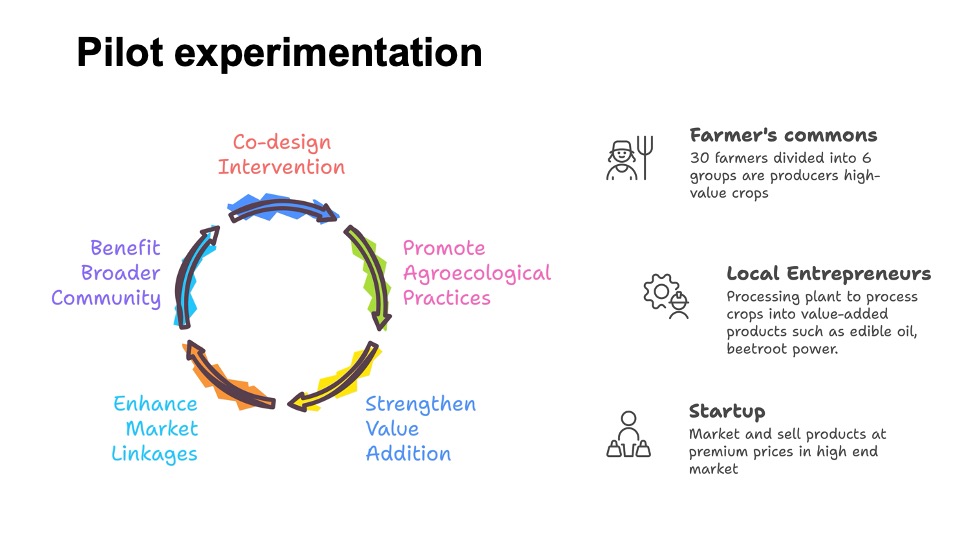
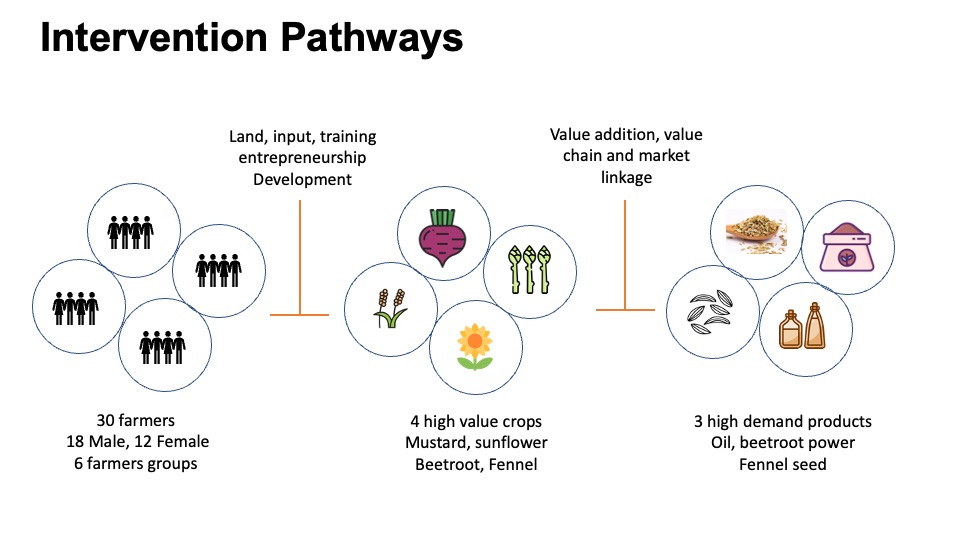
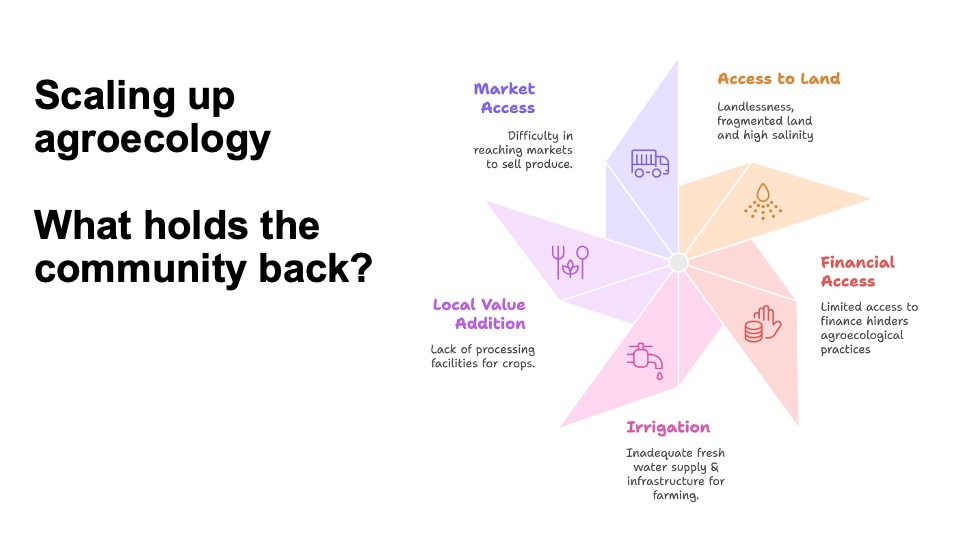
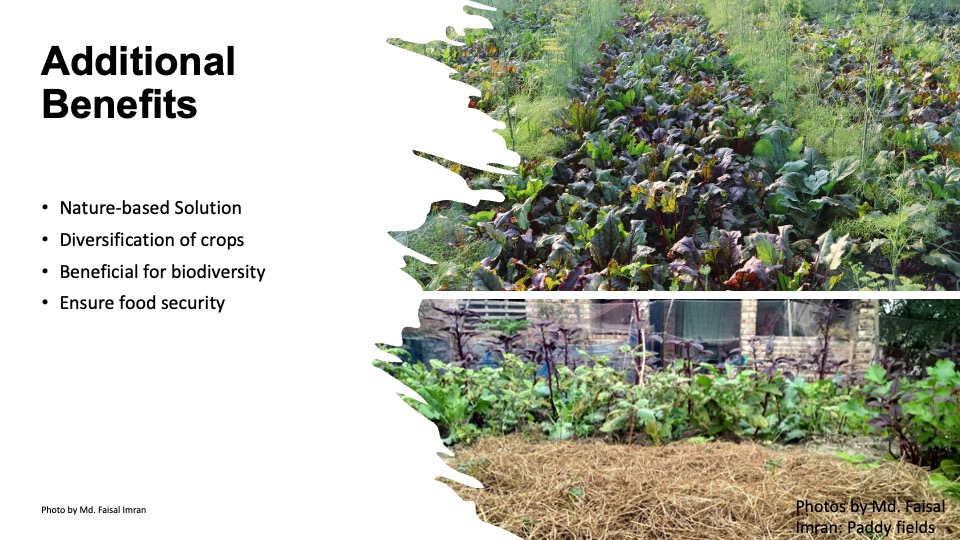
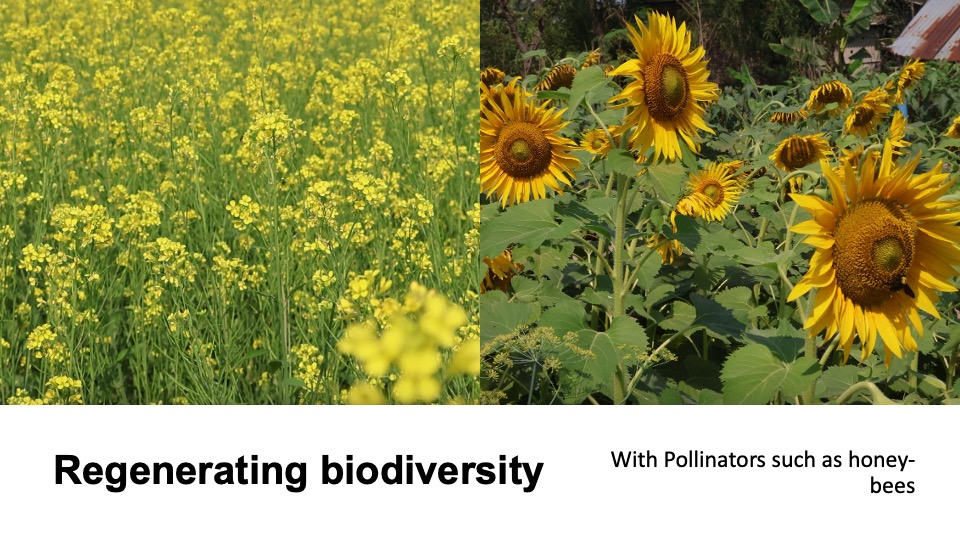
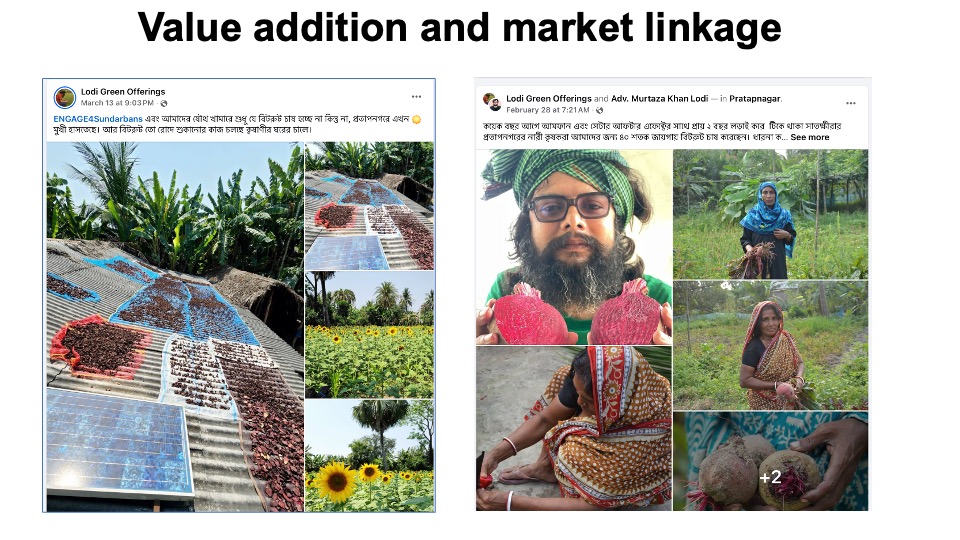
by emilie.cremin@gmail.com | Oct 5, 2023 | Resources, Uncategorized
MoU 2011 on Transboundary Sundarbans: action-oriented roadmap for ENGAGE
Overview: On September 6, 2011, a Memorandum of Understanding (MoU) was signed between the governments of India and Bangladesh, countries that share the common social-ecological landscape of the Sundarbans delta. The MoU was entrusted to the respective ministries of Environment, Forest and Climate Change in the two countries, calling for an adoption of joint management and common principles of conservation. To oversee the MoU’s implementation, a Joint Working Group was established. As a part of the consortium, the Bangladesh-India Sundarban Region Cooperation Initiative (BISRCI) was undertaken in June 2015, to implement a ‘knowledge-based advocacy’, facilitating and supporting effective bilateral cooperation in the region. BISRCI brought together research associations, civil society organizations, think tanks, and key members of the strategic community from two countries in order to deliberate on enhancing further cooperation for the formation of a cross-sectoral platform that will provide actionable plans for the management of the delta as well as boost bilateral coordination on Sundarbans.
SOR4D-ENGAGE, a transdisciplinary consortium of three country teams (India, Bangladesh and Switzerland), is motivated to conduct and pursue participatory action research in the transboundary delta with a shared set of objectives and motivation. The project brings together primarily social science researchers, practitioners and user groups, who have long-term experiences working in the delta. The exploratory as well as accommodative approach of the research allows it to deploy archival and ethnographic methods to meticulously explore, map and highlight the physical, political, ecological and social factors mutually operating and driving changes in the transboundary Sundarbans. Through the coupled methodology, four-dimensional realities that have been felt with physical attributes, social demography (migration, assets, livelihoods, gender) and political economy (regulation acts, arrangements, apparatuses, conservation and impacts) in two sides of the common delta, will be sketched, compared and assessed.
ENGAGE acknowledges the MoU as a vital policy template that strategizes mainstream conservation and management of the Sundarbans. Here, we critically read and review MoU articles to understand their current status (from secondary literature) and map the impediments and imperatives to effectuate the provisions, induced by nuanced ‘grounded’ analytics and empirics towards crafting socially resilient trajectories in and for the transboundary delta.
[Note: There are eight articles in the MoU template and among them, three articles (II, III, V) are directly related to the vision and plans of ENGAGE]
|
Article II |
Both Parties, with a view to exploiting the potential of the Sundarbans for development and alleviation of poverty, agree to undertake, but not limited to, the following endeavours: a) consider and adopt appropriate joint management and joint monitoring of resources; b) explore the possibility of implementing conservation and protection efforts, encourage mangrove regeneration, habitat restoration and rehabilitation programs, which would eventually increase the potential for carbon sequestration; c) develop a long term strategy for creating ecotourism opportunities for both countries, which will create synergy and generate greater revenue. |
| Specific provision |
Current status |
Envisioning ENGAGEment (SOR4D plans and visions) |
| Joint management and monitoring of resources
|
Fragmented, non-systematic and sporadic
|
Ø ENGAGE critically interrogates the mainstream conservation-management-monitoring framework and instead, conforms to the theoretical context of ‘social resilience’. |
| Habitat conservation, mangrove regeneration, habitat restoration and rehabilitation
|
Confined to protection of designated species and spaces
Climate change impacts are not taken into account
|
Ø The ‘social resilience’ approach and agenda, undertaken by the project, advocates ‘staying’ in the delta pitted against technocratic managed retreat and rehabilitation plans.
Ø ENGAGE is anchored to compile and collate place-based, plural perspectives on climate change-induced risks and resilience to offer solution-oriented ‘pervasive and persuasive pathways’, activating an inclusive governance framework.
|
| Ecotourism opportunities
|
Specific needs and priorities need to be identified |
Ø We envision participatory, community-agency-based ‘eco-educational tourism’ to simultaneously ensure local socio-economic viability, knowledge exchange and augmentation of research practices (practical-empirical-implementation laboratory attracting field schools and propagating ideas on Environmental Humanities) in the site, rather than following a conventional path that is mostly attracted by business models of outside practitioners or organizations.
|
|
Article III |
The Parties are in agreement that the Sundarban ecosystem is greatly influenced by human use and the human beings living around the Sundarban. The Parties will map and delineate these human settlements on respective sides so that a better understanding emerges of the relationship between human settlements and the ecosystems. The Parties will further develop a management plan that utilizes this information to address issues of livelihood, deprivation by flooding and other climate-related disasters, man-animal conflict, pollution, resource depletion, etc. The Parties will through the management plan, also identify opportunities for livelihood generation that do not adversely affect the Sundarban ecosystem.
|
| Specific provision |
Current status |
Envisioning ENGAGEment (SOR4D plans and visions) |
| Map and delineate human settlements on respective sides
|
Local-level management plans exist but, they are not transformational
|
Ø A detailed exploration and nuanced analyses of multiple interconnected risks, imbricated in the socio-cultural and political-ecological attributes of the region, will pave the way through which ‘situated adaptive practices’ could be collectively identified, mapped and classified.
Ø We would rather be emphasising (trans)local stories of transformation, facilitating knowledge sharing and actions, and envisioning systematic ‘scaling up’ and ‘scaling out’ approaches.
|
|
Develop management plans for:
i. Livelihood improvement
ii. Disaster management |
Needs to promote the development of cooperation in fisheries, aquaculture and allied activities between the two countries
Disaster management plans do not include recovery |
Ø Co-identification and co-adoption of a solution-focused pilot intervention plan for experimentation on small-scale inland fishing and integrated farming in the trans-local project sites.
Ø The project’s impact on knowledge co-creation and livelihoods of stakeholders will be felt in forms of economic stability; socio-cultural belongingness and cohesion; gender empowerment, and improved ecosystem functioning through rejuvenatory practices.
Ø The project’s inclusive approach will allow it to create a comprehensive, practice-oriented knowledge base and facilitate policy outcomes (training guides, knowledge products, digital platforms hosted in the policy network) on disaster risk mitigation mechanisms and climate-resilient, gender-neutral livelihood strategies. |
|
Article V |
Both Parties will carry out research to develop a common and shared understanding of the impacts of climate change along with adaptation strategies that can be implemented.
|
| Specific provision |
Current status |
Envisioning ENGAGEment (SOR4D plans and visions) |
| Develop a common and shared understanding of the impacts of climate change
|
Site-specific knowledge of climate change impacts exists
|
Ø By engaging partnerships among and perceptions of multiple groups of actors (academia, development practitioners, policymakers and local communities) across transboundary, transdisciplinary and trans-local contexts, the ENGAGE platform will bring to the fore prominent drivers of climate change, its varied implications and adaptation ‘tactics’ by communities in the delta.
|
| Design implementable adaptation strategies |
Small-scale projects have been undertaken without addressing ‘adaptation’
|
Ø The plural understandings of disaster-induced risks and co-mapping of livelihood as well as adaptive practices, will be mobilized, used and shared through local and regional platforms (workshops, seminars, visual presentation, interactions etc.).
|

















